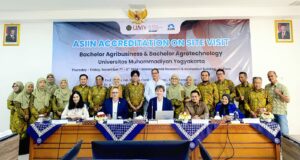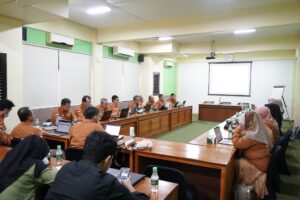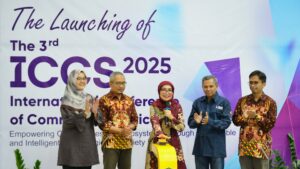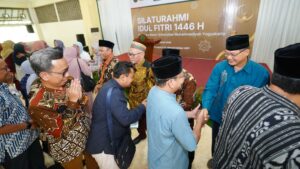Global economic crisis in 1997, most of domestic industries could withstand while secondary and big industries and were out of business. In a public discussion on Saturday (8/10) at A.R. Fachruddin A, floor 5, Universitas Muhammadiyah Yogyakarta (UMY), an Agribusiness lecturer of UMY Dr. Ir. Triwara Buddhi Satyarini, M.P. argued that the circumstance was because family of the industries relied on the business.
Dr. Triwa contended that domestic industries can be one of the solutions to cope with economic crisis. Another industry which can survive in the crisis era was manufacture industries. They depended on agricultural products as raw materials for local or import products. “The manufacture industries, indeed, change raw materials mechanically, chemically, or by handiwork to become semi-finished products. Thus, goods which cost low can have higher cost,” he stated.
Even though the domestic industries could stand in the crisis era, they could not manage their business well. “Business management is a knowledge which businesspersons should master. Good management is the key of success. The manager should be able to make plans, handle employees and other resources, guide the employees, and evaluate duties. The businesspersons also have to be provided by coaching,” Dr. Triwara asserted.
Furthermore, the other speaker of the public discussion, Dr. Ir. Gatot Supangkat, a lecturer of Agrotechnology of UMY conveyed that government should support in farmer regeneration. If it works, it will cope with poverty. “One of the efforts of food self-sufficiency is to make varieties of high-yielding rice. Nevertheless the number of varieties of high-yielding rice is only a few due to factors of geophysics, technology, culture, farmers, and policy,” he mentioned.
Dr. Gatot asserted that to maintain the sustainability of the varieties, there should be farmer autonomy by seedstock, new variety making, and provision of organic fertilizer. “To create farmer autonomy, facilities of government should entirely be provided to farmers instead of state corporations. The main barrier of the sustainability is the seedstock. Therefore, new variety making and provision of organic fertilizer are necessary to enhance farmer autonomy,” he ended.







